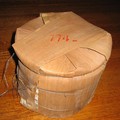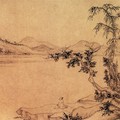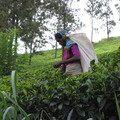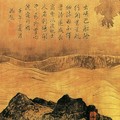Puer Tea Glossary - Zhi Zheng Tea Shop
„ba qi , 霸气 - . ba - 霸 means hegemonic, overlord or despot. So ba qi means strong, aggressive qi. Used to refer to a certain quality of qi in tea.“
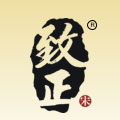
Quotes Tags: China
„bao, 薄 - thin, flimsy, weak. Used to describe tea that is lacking in flavour, body, 'thickness'. “

Quotes Tags: China, Experiencing tea, Pu-erh
„bing; 饼 - cake. Something shaped like a cake. 茶饼; cha bing - tea cake. This is a cake of tea that has been pressed by hand or machine into a compact form. Easy for transporting and storage. The more tightly pressed it is, the slower the tea will age. They can range in size from 100 gms to several kilograms.“

Quotes Tags: Pu-erh, Tea production, China
„bo; 波 - wave. The term 波-bo here has the same meaning as flush: 第一波, di yi bo ,第二波, di er bo, and so on“

Quotes Tags: China
„cang wei; 仓味. The flavour of tea that has been stored (poorly). Often used to refer to the aroma of 'Wet Stored' tea.“

Quotes Tags: China, Experiencing tea, Pu-erh
„cha hu; 茶壶 - Tea pot. Made of porcelain, pottery or glass. Yixing pots are used for both cooked and raw Puer. Since they are pourous, the pots absorb flavours and chemicals from the tea. If one is serious about using Yixing pots, particularly for sheng Puer, one needs to be ready to get at least two pots - one for older and one for younger teas. And these should not be used for brewing other teas, and vice-versa. Yixing teapots will typically soften the flavours of sheng Puer.“

Quotes Tags: Sheng - Raw Puerh, Shu - Ripe Puerh, Tea infusion, China
„cha ju; 茶具 - Literally tea-tools. The paraphernalia for making tea gong-fu style“

Quotes Tags: Tea infusion, China
„cha men (zi); 茶闷(子) - Another term for Gaiwan. 闷;men - to cover tightly.“

Quotes Tags: Tea infusion, China
„cha pan (zi); 茶盘(子) - Tea tray. The tray with a drainage system - normally a simple pipe- that is used when making tea. Usually made from bamboo, wood or stone.“

Quotes Tags: Tea infusion, China
„cha qi; 茶气 - Tea nature. The inherent energetic qualities in tea. That which makes it tea. Sometimes rather unsatisfactorily interpreted as 'tea energy'; translating qi as energy suggests perhaps a rather too narrow idea of qi but it is an interesting term to consider since many people use the term. Ideas and experiences of cha qi vary considerably; the taste of tea, the appearance of the leaves (particularly after steeping i.e. the life in the tea), any physical or psychological experiences one may have as a result of drinking tea are all aspects of cha qi. One cannot satisfactorily dissociate one from the other just as one cannot isolate sunshine from wind, which are both manifestations of weather, tian qi. If it did not have cha qi it wouldn't be tea, it would be something else. From a western point of view perhaps, cha qi is due, in some good part, to the presence of caffeine, theine, etc. The active constituents.“

Quotes Tags: China, Experiencing tea, Pu-erh
„cha shi; 茶室 - Literally tea room. A tea shop. Also sometimes a brothel. Japanese friends who were so acquainted have told me that in China Town in Bangkok, up until a few years ago, there were a handful of such establishments, where one ostensibly went to drink tea, but could avail oneself of further diversions. Apparently, the tea was not up to scratch.“

Quotes Tags: Tea infusion, Teahouse, China
„cha wan; 茶碗 - Tea bowl. This is typically a small handle-less bowl made from porcelain, terracotta or glass. As with Yixing pots, anything that is pourous is going to absorb flavours and should ideally be dedicated to one kind of tea.“

Quotes Tags: China
„cha ya; 茶芽. Tea tip/s. 芽 - ya literally means tooth, So the new shoots of tea leaves. These are generally the most prized, followed by other less exquisit formations such as yi ya yi ye,一牙一叶 and yi ya liang ye, 一牙两叶, etc.“

Quotes Tags: China
„cha yi; 茶仪 - Tea ceremony. Not generally used to refer to the daily habit of tea making and drinking. Most habitual tea drinkers would be unlikely to use this term in reference to their tea-making activities. Not common parlance in Yunnan tea making circles“

Quotes Tags: Tea infusion, China, Experiencing tea, Pu-erh
„cha yuan; 茶园 - Tea garden. Commonly used to refer to a tea plantation.“

Quotes Tags: Tea production, China
„cha zhuan; 茶砖 - Tea brick 砖 has石shi as a radical which means stone or something to do with stone, so a brick shape of material from the ground, but the wider meaning of brick is a brick shape of any material.“

Quotes Tags: China
„chen wei; 陈味 - Aged, mellow. An expression which in Chinese can be used to refer to the flavour of aged alcohol, tea, etc. “

Quotes Tags: China, Experiencing tea, Pu-erh
„chui niu; 吹牛. 吹 - chui, to blow. 牛 - niu, cow, but in this case can be read as 公牛 or bull. An almost default aspect of tea drinking - 'shooting the bull'. The talk that often accompanies tea drinking and can be peppered with much knowledge, a little exaggeration and some humour. Also 吹牛皮. 皮 - skin or hide. 'Blowing the bulls hide.'“

Quotes Tags: Teahouse, China, Experiencing tea, Pu-erh
„chun cha; 春茶 - spring tea. Normally divided into periods; 头春; tou chun/first flush, 二春; er chun/second flush, 春尾chun wei, tale of spring. Also see 波-bo is also used. chun; 纯 - pure. not pin pei“

Quotes Tags: Tea production, China
„da piao; 大票 - large ticket. The bigger loose label or ticket which is found inside a tea cake wrapper “

Quotes Tags: China, Pu-erh, Tea production
„da shu; 大树 - 大,da -big,old. 树, shu- tree. Big/old tree. A term used to refer to trees that could be anything from say 30 old years to 70 yrs old. Many different places have their own approach, so there appears to be no fixed definition of what qualifies as da shu. See Gu shu. “

Quotes Tags: Tea production, China
„da ye; 大叶 - literally big leaf. The Chinese term for the broad leaf varietal camelia sinensis assamica.“

Quotes Tags: Tea production, China
„Dian Hong; 滇红. 滇 - Dian is an old name for Yunnan. So Yunnan Black Tea. “

„fa jiao; 发酵 - To ferment/fermented. Shu Puer tea is a made by a process of fermentation. Raw puer is referred to as hou fa jiao cha - post-fermented tea -which technically is said to be a mix of oxidation and fermentation.“

Quotes Tags: Sheng - Raw Puerh, Pu-erh, Tea production, China
„gan; 干 - dry. Sometimes used to describe a certain feeling in the mouth, typically on the tongue or in the throat that is either due to the nature of the tea, or the way it has been processed or stored. Distinct from astringrent. See also 燥/zao“

Quotes Tags: China, Experiencing tea, Pu-erh
„gan cang; 干藏 - dry storage. Referring to tea storage that tends to be dry rather than excessively humid. Storing raw Puer in an excessively dry climate will have a harmful effect on the tea.“

Quotes Tags: Sheng - Raw Puerh, Pu-erh, China, Experiencing tea
„gaiwan; 盖碗 - literally lid-bowl. A steeping bowl with a lid. They generally come in two or three sizes. The most common is 140cl/4oz. The lid is used to clear off any extraneous materials that may float to the surface on flushing and initial steepings. These (1 or 2) are typically not drunk. The lid is then used to partially strain the tea by holding it a little to one side as one pours the tea off through a fine strainer into a gong dao bei (共道杯) or decanting jug.“

Quotes Tags: Tea infusion, China
„gong fu; 功夫 - The skill or art of tea making. The same two characters are used to refer to other fields of skill development. Most commonly to the field of self defence.“

Quotes Tags: Tea infusion, Yunnan, China
„guan mu; 灌木 - Literally means bush or shrub. 灌 - guan, to irrigate. This style of cultivation is relatively new in Yunnan, having only started in the early to mid 20th Century. Tea bushes are cultivated in rows. Guan mu cha is the tea from cultivated bushes.“

Quotes Tags: Tea production, Yunnan, China
„hong; 红 - red. In China, what is called black tea in the English speaking world, is called red. Cooked Puer is sometimes mistakenly referred to as a black tea.“

Quotes Tags: Shu - Ripe Puerh, Red tea, Black tea, Pu-erh, Tea production, China
„hong qing; 烘青. Oven dried. Oven dried tea is generally felt to be inferior to sun-dried. However, most tea producers have one, often wood fired, oven, which is used to dry leaves if time or weather does not permit sun or air drying. “

Quotes Tags: Tea production, China
„hui gan; 回甜 - Hui 回- return, come back, reply. 甜, gan-sweet. Together - sweet return, sweet aftertaste. Used generally to refer to the aftertaste of tea, be it sweet or not.“

Quotes Tags: Tea infusion, China, Experiencing tea, Pu-erh
„hun he; 混合 - A mix or blend. Perhaps with some derogatory connotation. Used by some to refer to pin pei cha. i.e tea that is not pure; not tea from one single place, season and/or type of tree. e.g. old tree tea leaves from two or more places , or tea from the same place but not only from old or ancient trees or bushes, or from different seasons. “

Quotes Tags: Tea production, China
„hou fajiao; 后发酵 - Post-fermented. 后hou - behind, after. 发; fa - has many meanings; to develop, expand, bring into existences, start; rise or expand when fermented. 酵 jiao - fermented. Together 发酵 means to ferment. Confusion often arises as the term fajiao is used to refer to both processes of fermentation and oxidation. The more specific term yang hua - 氧化 refers specifically to oxidation.“

Quotes Tags: Tea oxidation, Tea production, China
„hou long; 喉咙 - The throat. Often used in describing the experience of tea drinking. A pleasant feeling in the throat is a key factor in evaluating the quality of tea; 喉咙舒服/喉咙不舒服 - a comfortable or uncomfortable feeling in the throat.“

Quotes Tags: China, Experiencing tea, Pu-erh
„ji qi rou (de); 机器揉(的) - Machine rolled. Some machine rolled tea has a very pleasing appearance and most tea gardens, however small, will have a machine, which is generally electric, but sometimes hand operated. However, the best sheng puer tea is still hand rolled.“

Quotes Tags: Tea production, China
„ji qi sha (de); 机器杀(的) - Machine fried. Most tea famers have a machine for the sha qing process, which is generally an electrically driven revolving drum, fired by a wood fire. Machine fried tea is probably better than poorly hand fried tea, but lacks the possibility of the more tactile method of hand frying.“

Quotes Tags: Tea production, China
„kou gan; 口感 - Literally mouth-feeling. Dictionary definitions vary between mouth-feel referring strictly to textural character - i.e. 质地/zhi di, others to a broader definition of flavour. In tea drinking it is largely referring to the former, but cannot be easily separated from other gustatory and olfactory sensations.“

Quotes Tags: China, Experiencing tea, Pu-erh
„ku se; 苦涩 - Bitter and astringent. The nature of new raw Puer is a little astringent and bitter, followed by a sweet aftertaste. However, a bitterness with no sweet aftertaste is not typical of Puer and an astringency which is not comfortable would not be considered good tea. “

Quotes Tags: Sheng - Raw Puerh, Pu-erh, China, Experiencing tea
„Ku Cha; 苦茶 - Bitter Tea. The tea from a variety of tea tree (Camelia Sinensis Assamica var.Kucha) found in an area around Mensong.“

Quotes Tags: China, Experiencing tea, Pu-erh
„mao cha; 毛茶 - Tea that has been dry fried in a tea wok & then rolled & dried.“

Quotes Tags: Tea production, China, Maocha
„nei xiang;内香 - refers to a kind of fragrance that is not 'yang' or obvious. Often not perceived till after the tea has been swallowed. Sometimes also 幽香 - you xiang.“

Quotes Tags: China, Experiencing tea, Pu-erh
„Pang xie jiao; 旁鞋脚. Latin; (Viscum articulatum Burm.f.) Literally Crabs legs. A parasitic plant that grows on trees in sub-tropical regions. When it grows on the tea tree it absorbs flavour from the tree and makes a sweet, refreshing drink, hot or cool. Very limited availability. Puer cakes can be found that have Pangxiejiao mixed into the cake. Normally around 10-15%. It is also part of the Chinese medicine pharmacopoeia – said to have a diuretic effect and is used to clear heat“

Quotes Tags: Pu-erh, Tea production, China, Health
„pin pei; 拼配. A blend or mix. pin pei Puer comes in many forms; tea from a particular place, but comprising of old tea tree leaves mixed with tea bush leaves or, old tree tea from different areas or seasons mixed together, or finally, a combination of all of the above. “

Quotes Tags: Tea production, China
„ping wen; 平稳. Smooth, steady, even. Used to refer to the taste of tea. Puer should be smooth and steady without any sudden changes in the flavour as steepings progress. A sudden change or loss of flavour is an indicator of poor quality. Good Puer can be steeped 20 to 30 times and maintain it's flavour. “

Quotes Tags: Pu-erh, China, Experiencing tea
„Pu'er; 普洱. Also Puerh, Pu - er etc. Pu'er is the modern pinyin spelling. The place name of the Old City of Pu'er through which pack horses transported the tea from Southern Yunnan. The names were recently changed; Pu'er is now Ning Er and nearby Simao has the adopted name of Pu'er. Locally, in spoken Chinese at least, Ning Er is still Pu'er. “

„Pu'er Tea; 普洱茶. That 'Puer Tea' was given this name suggests that historically this kind of tea - post fermented camelia sinensis assamica must have come from the south and west of Puer for there to have been any sense in transporting it through that city. The majority of good Puer tea still comes from the Xishuangbanna region. Puer County itself was not an historically important tea producing region.“

„Yunnan Provincial Government has stipulated that for tea to qualify as Pu er it must be:
i) of the Broad Leaf variety (Sinensis Assamica)
ii) grown in the Lancang (Mekong) River region
iii) sun dried. The third point is important as there is much tea grown in the Lancang River area that is not sun dried.
There are also increasing amounts of Small Leaf Variety (Xiao Ye Zhong /小叶种) being grown in the Lancang River area.“

Quotes Tags: Pu-erh, Tea production, Yunnan, China, Lancang
„Qing Ming Cha; 清明茶.said to be tea that is picked three days either side of the springtime festival - Qing Ming Jie 清明节- Grave Sweeping Festival which falls on April 4th and 5th.“

Quotes Tags: China
„sha qing; 杀青. Literally to kill. So 杀青 translates as killing green. The process of pan 'frying' fresh tea arrests the action of plant enzymes that will have begun after picking.“

Quotes Tags: Tea production, China
„shai qing; 晒青 - Sun dried. This is a critical aspect of Puer Tea processing. Oven dried tea is considered inferior to sun-dried. The Provincial Government has ruled that Puer tea must be sun-dried.“

Quotes Tags: Pu-erh, Tea production, China
„sheng; 生 - Raw, uncooked, un-processed. Here used to refer to Puer tea that is made from maocha that does not undergo further processing, other than steaming and pressing where it is made into cake, brick, etc. form.“

Quotes Tags: Sheng - Raw Puerh, Pu-erh, China
„shi cang; 湿仓 - wet storage. Storage that is intentionally humid. Done in order to attempt to speed up the ageing process of Puer tea. It has risks associated with it from effectively shortening the 'life' of the tea, having a deliterous effect on the plant constituents - not least the aromatics compounds to ruining the tea altogether.“

Quotes Tags: Pu-erh, Tea production, China, Experiencing tea
„tan qing; 摊青 - The process of laying freshly picked leaves out to allow the moisture content to diminish before frying“

Quotes Tags: Tea production, China
„tai di; 台地 - Literally mesa or plateau.台地茶 tai di cha refers to tea bushes that have been planted and are still young. They are also the broad leaf varietal and have generally been grown from the seeds of old trees. They are not inherently bad, but the use of chemicals in their cultivation is pervasive.“

Quotes Tags: China
„tian xiang; 甜香 - 甜, tian - sweet.香, xiang - fragrant. Used to refer to Puer tea that has a sweet - fragrant flavour “

Quotes Tags: Pu-erh, China, Experiencing tea
„tong; 筒 - Literally a barrel or barrel shaped object. A tong in Yunnan tea culture is a bundle of 7 tea cakes wrapped in the outer skin of bamboo which naturally sheds from around the base of the bamboo stem. Each cake weighs 357grams so making a total of 2,499 gm. Said by some to have been calculated in order to remain under a specific legislated weight of 2.5 kg. There were originally said to be 8 cakes in a tong. The 8th being paid as a levy. An earlier unit of weight in China was the liang. A cake of tea weighed 7 liang and 7 cakes in a tong made 49 liang. “

Quotes Tags: Pu-erh, Tea production, Yunnan, China
„tong feng; 通风 - air-flow. Puer should be stored somewhere where there is a little air movement - it doesn't need to be much. Even if it is quite humid, the airflow will guard against tea developing mould. However, care should be taken that tea is not stored in a draft which will dry the tea tea out.“

Quotes Tags: Pu-erh, Tea production, China
„wo dui; 渥 - Wet, 堆 heap/pile - Wo dui - 渥堆, Literally wet -pile The process of 'pile fermentation which is used to make 'aged' Puer tea.“

Quotes Tags: Shu - Ripe Puerh, Pu-erh, Tea production, China
„ye sheng; 野生 - Wild, feral. Whilst there is still a comparatively large number of truly wild tea trees in Yunnan, most tea does not come from them, coming rather from arboreal trees.i.e. trees that were originally cultivated, but then left untended for many years, or bushes. “

„Yu Shui Cha; 雨水茶. Literally Rain water tea. Summer Tea. Less prized than Spring Tea or Autumn Tea. The flavour is usually less fulsome than Spring tea. Also, it is often oven-dried (hong qing; 烘青) as it is harvested in the rainy season.“

Quotes Tags: Tea production, China, Pu-erh
„yun; 韵. Charm, appeal, allure. A difficult term to render into English as it refers to a quality of tea that 'cannot be apprehended by the five senses.' Generally used with hou; 喉 - throat. Hou yun. A pleasant feeling that lingers in the throat after swallowing tea. Distinct from hui-gan. “

Quotes Tags: China, Experiencing tea, Pu-erh
„zhang wei; 樟味 - Camphor flavour. This is sometimes present in old tea tree Puer. Due, it is said, to the presence of Camphor Laurels in tea gardens where they were planted as a form of natural pest control. “

Quotes Tags: China, Experiencing tea, Pu-erh
„zi juan; 紫娟. Purple Beauty. A purple leaved variety of Sinensis assamica which has been produced in Yunnan. “

Theme
Tea by region
We will help you with tea selection.
Do you like quality loose tea?
We will help you to find the right one for you. Be inspired by tea ratings of other tea lovers. Rating stars could help you.


Review your cup of tea.
Review the tea you are drinking and help other tea lovers to find the right cup of tea.



Teas
Lao Banzhang 2004 Bamboo Tube
 1 review
1 reviewLao Banzhang 2004 is a pu-erh pressed into bamboo tubes. Mighty and rich tea soup reminds us its great...
2011 Mengmao Lao Shu Ye Sheng Xiao Bing 100g
 1 review
1 review2011 Spring harvest. This material come from Baoshan area, 2600 meters high mountain closed with Mengmao...
ManZhuan 2013 - blind tasting set 5
 1 review
1 reviewsweetish, rich, dense taste is apparent from the first brewing, in the second brew the fine gushu...
Quotes
„sha qing; 杀青. Literally to kill. So 杀青 translates as killing green. The process of pan 'frying' fresh tea arrests the action of plant enzymes that will have begun after picking.“



 Shops
Shops Share on Facebook
Share on Facebook



